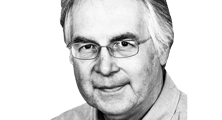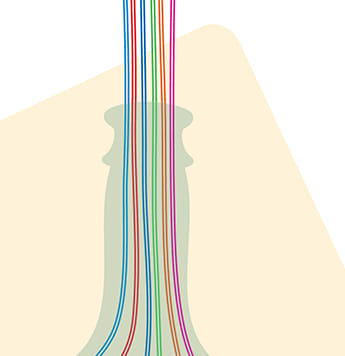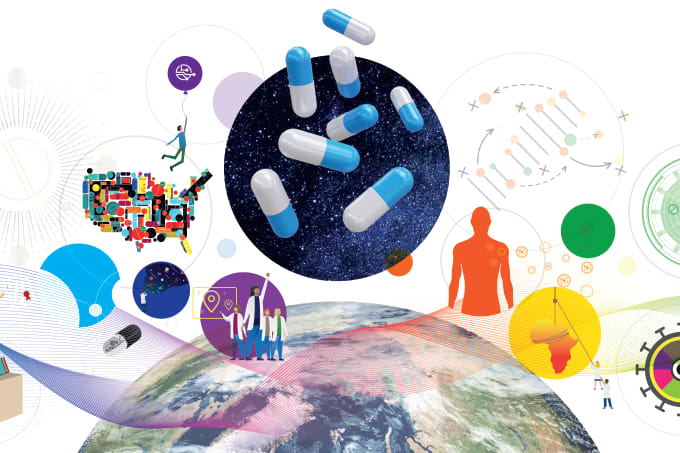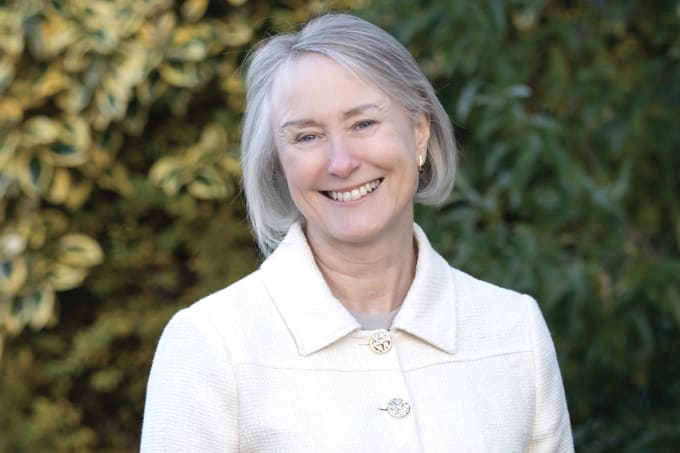Timothy Allsopp is the founder and Managing Director of consulting and strategy firm, Consilium, UK. Until recently, he was the Head of Stem Cell & Cell Therapy Lead at Neusentis, a Pfizer research unit.

Stéphane Boissel has experience in investment banking and the biotech immunotherapy space. Today, he is CEO of TxCell, France, which focuses on personalized T-cell immunotherapies.

Catherine Bollard is President of the International Society for Cellular Therapy. She also leads a research laboratory focusing on the development of novel cell therapeutics as Director of the Program for Cell Enhancement and Technologies for Immunotherapy within the Children’s Research Institute of Children’s National Health System and George Washington University School of Medicine & Health Sciences, USA.

Thomas Heathman has a PhD in regenerative medicine from Loughborough University, UK, and today is Business Leader in the Technology Development, Manufacturing Development & GTP Services, at PCT, a Hitachi Group Company, USA, a global contract development and manufacturing organization for the cell therapy industry.

David Williams is Professor of Healthcare Engineering at Loughborough University, UK, and was founding Director of the Loughborough-led Engineering and Physical Sciences Research Council Centre for Innovative Manufacturing in Regenerative Medicine. He was awarded an OBE for services to science and engineering in the Queen’s Birthday Honours List in 2014.

CAR-Ts A Go?
By James Strachan, Associate Editor of The Medicine Maker. CAR-T cell therapies have caused much excitement in the scientific community, but could such therapies pass regulatory muster? Things are looking very good for Novartis’ CAR-T cell therapy, CTL019, for pediatric acute lymphoblastic leukaemia (ALL). In July, the FDA’s Oncologic Drugs Advisory Committee unanimously recommended CTL019 for approval (1). A Biologics License Application is under FDA priority review – approval is by no means guaranteed, but the FDA will take the comments of the committee into consideration. And the therapy received glowing recommendations, according to media reports. Tim Cripe, an oncologist with Nationwide Children’s Hospital in Columbus, Ohio, and a temporary member of the committee, reportedly said, “I think this is the most exciting thing I’ve seen in my lifetime”, while another panel member, Malcolm A. Smith, said the treatment is “a major advance, and is ushering in a new era” (2). CTL019 was first developed by the University of Pennsylvania, but in 2012, Novartis and Penn entered into a collaboration to further research and commercialize the therapy. CTL019 uses the body’s own immune system to identify and kill cancerous cells, making the manufacturing process for this type of therapy a new paradigm for the FDA – involving multiple rounds of cryopreservation and shipping. A patient’s white bloods cells are first separated from the blood (leukapheresis), cryogenically frozen, then shipped to a manufacturing facility. After thawing, monocytes and B-lineage lymphoblasts are removed, and the remaining T cells are activated using antibody-coated beads, which are transduced with a vector containing the anti-CD19 CAR transgene – this enables the resulting “CAR-T” cells to identify and eliminate CD19-expressing cancerous cells. The transduced T cells are subsequently expanded ex vivo and then washed, formulated, and again cryopreserved, before being shipped back to the clinical site and administered to the patient (3). The advisory committee reviewed evidence from a study showing that, of the safety analysis population (68 patients), 32 experienced the potentially life-threatening cytokine release syndrome – but there were no deaths (4). In its report, the FDA said that postmarketing considerations for long-term safety monitoring may be necessary to address the potential safety concern, since the study was too short to fully consider potential long-term side effects. A follow-up study is planned to monitor patients for 15 years post-treatment. Kite Pharma CEO, Arlie Belldegrun, said in a blog post (5), “I will be Novartis’ biggest cheerleader today… Today is not about business or competition. Today, we are not rivals. Today is about advancing an exciting technology that has the potential to transform cancer treatment.” The FDA is currently reviewing Kite’s CAR-T for the treatment of adults with advanced aggressive lymphoma and a decision is expected by November 29, this year.Collaboration is Key
By Robert Zweigerdt In the article Gurus of Advanced Medicine, Catherine Bollard from the ISCT stated that collaboration is crucial to advance the cell therapy sector – and she is correct. TECHNOBEAT (Tools and Technologies for Breakthrough in Heart Therapies), funded by the European Commission’s Horizon2020, is one example of a collaborative project that is addressing unmet medical needs in cardiovascular disease. The unlimited proliferation potential of human embryonic stem cells (hESC) and their ability to differentiate into, in principle, any somatic cell type in vitro, has opened a whole new universe of exciting possibilities in regenerative medicine, pharmacological research, human developmental biology and basic stem cell research. The possibilities were further stimulated by the derivation of induced pluripotent stem cells from mice (2006) and humans (2007) by Shinya Yamanaka and his team, through a technology enabling the so called “reprograming of somatic cells” from adult patients into an ESC-like state. These discoveries revealed that human pluripotent stem cells (hPSC; an umbrella term for hESC and hiPSC) can serve as a universal cell source for the derivation of unlimited amounts of functional somatic cells to help, for example, with disease-induced cell loss in organs. Cardiovascular diseases, particularly ischemic cardiomyopathies, remain the major global causes of morbidity and mortality affecting millions of patients worldwide. The obstruction of coronary arteries, which normally supply the heart with oxygenated blood, triggers ischemia in areas downstream of the occluded vessel, a condition known as myocardial infarction. The condition often leads to the terminal loss of billions of heart muscle cells, which are not replaced by endogenous repair mechanisms and may result in reduced heart function and ultimately heart failure. TECHNOBEAT aims to develop new treatment options for patients suffering from heart failure caused by the loss of heart muscle tissue following a heart attack. The consortium calls on the expertise of a network of leading European entities in the cardiovascular field, including Hannover Medical School – a medical center with a strong focus on translating cell-based regenerative medicine for several organs; Leiden University, which offers leading expertise in basic mechanism of cardiovascular differentiation of hPSCs; and Utrecht Medical Centre, which brings top expertise in experimental cardiology and development of pre-clinical animal models. The consortium also involves partners with leading know-how in clinical stem cell production: Paracelsus University in Salzburg provides expertise in the derivation and clinical application of adult stem cells (in particular, mesenchymal stem cells, an important cellular component for organ repair) and Kadimastem, located in Rohovot, Israel, is developing protocols for the clinically compliant manufacture of hPSCs and their progenies, as well as expertise in handling the regulatory requirements of regenerative medicine. In addition, technical innovation in hardware development for stem cell bioprocessing, monitoring and analysis is essential to our project – as well as the whole cell therapy field. In the area of bioreactor development, Eppendorf provides their support, while OVIZIO provides innovative solutions in the monitoring of cells and more complex cell aggregates. Finally, it also goes without saying that safety is of great importance in cell-based organ repair – which specifically requires monitoring of the genomic integrity of mass-expanded and differentiated stem cells to avoid process-induced cell transformation and the potential development of tumors. Thus, our project partner at the University of Sheffield in the UK is applying its long-standing expertise in analyzing the genomic stability of hESC lines to the field of hiPSCs manufacturing. Read more about TECHNOBEAT at http://tmm.txp.to/0717/technobeatReferences
- Novartis, “Novartis CAR-T cell therapy CTL019 unanimously (10-0) recommended for approval by FDA advisory committee to treat pediatric, young adult r/r B-cell ALL,” (2017). Available at: http://bit.ly/2uTmQhC. Last accessed July 18, 2017. C Dietz, P Goldberg, “ODAC unanimously recommends approval for CAR T-cell therapy for relapsed and refractory B-cell ALL in kids and young adults,” The Cancer Letter, 28 (2017). FDA, “FDA Briefing Document Oncologic Drugs Advisory Committee Meeting”, (2017). Last accessed July 17, 2017. Available at: http://bit. ly/2vtaVGM. FDA, “Oncologic Drugs Advisory Committee Briefing Document”, (2017). Last accessed July 17, 2017. Available at: http://bit.ly/2u0RoOq. A Belldegrun, “CAR-T in the Spotlight”, (2017). Last accessed July 17, 2017. Available at: http://bit.ly/2vbNTEf.




